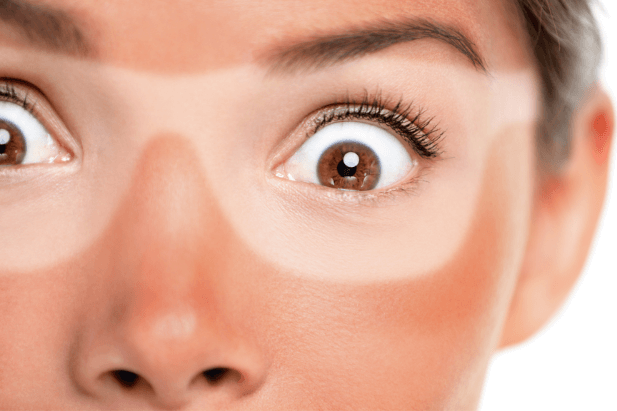Summer is a fun and exciting season, offering numerous outdoor opportunities. Whether you’re enjoying a day at the beach, going for a hike, or simply strolling around town, your eyes are exposed to harmful UV rays that can lead to various eye health issues. Let’s break down the impact of harmful UV rays and why you should protect your eyes!
The Science Behind UV Rays and The Effects
To understand different ways you should protect your eyes, it’s important to know the science. At Atlanta Vision Institute, we want to break down the different harmful effects of UV rays so you don’t have to read another textbook on your own.
Ultraviolet (UV) radiation is energy produced by the sun that can cause various eye problems.
Some of these problems include:
- Photokeratitis: This is like a “sunburn” of the cornea. This condition can cause temporary vision loss, extreme discomfort, and heightened sensitivity to light. Essentially, it feels like having a painful sunburn on the surface of the eye.
- Cataracts: Prolonged exposure to UV rays may increase the risk of cataracts, a clouding of the eye’s natural lens, This leads to blurred vision and eventual vision impairment. While cataracts can often be treated with surgery, it’s best to prevent their development by protecting your eyes from UV radiation.
- Macular Degeneration: UV rays can accelerate macular degeneration, a condition that affects the central part of the retina, resulting in vision loss over time. The macula is responsible for sharp, detailed vision, making its health crucial for tasks like reading, driving, and recognizing faces.
- Pterygium: A growth on the eye’s surface, often referred to as “surfer’s eye,” which can be painful and affect your vision. It involves the development of pink, fleshy tissue on the surface of the eye, typically starting from the conjunctiva and extending toward the cornea.
Pterygium can cause discomfort, redness, and in severe cases, it may affect vision by encroaching on the cornea.
It’s important to understand that UV rays can be harmful not only on bright sunny days but also on overcast or hazy days. The damaging effects of UV radiation can penetrate cloud cover, making it essential to protect your eyes even when the sun might not be visibly intense.
How to Protect Your Eyes from Sun Damage
Now that you received a quick science lesson let’s break down everyday ways you can make eye protection a breeze. It’s not as complicated as you think! You might already have some of these tools in your home as we speak.
- Wear Sunglasses: Invest in high-quality sunglasses that provide 100% UV protection. Look for sunglasses that block both UVA and UVB rays to ensure maximum eye safety. Atlanta Vision Institute offers a wide range of stylish sunglasses that not only shield your eyes but also complement your summer look. Visit their website to find the perfect pair for you.
- Protective Eyewear During Water Activities: When engaging in water-related activities or spending time at higher altitudes, the intensity of UV rays increases, making protective eyewear even more critical. Remember to encourage your friends and family to wear sunglasses, especially young children, as their eyes are more susceptible to damage from UV exposure.
- Use Wide-Brimmed Hats: Add an extra layer of protection by wearing a wide-brimmed hat when you’re out in the sun. This will not only shield your eyes but also provide coverage for your face, neck, and ears.
- Stay in the Shade: When the sun is at its peak, usually between 10 AM and 4 PM, try to stay in the shade as much as possible. This reduces your direct exposure to harmful UV rays.
- Avoid Staring at the Sun: This may seem obvious, but it’s essential to emphasize. Never look directly at the sun, even during a solar eclipse, as this can cause permanent damage to your eyes.
- Stay Hydrated: Staying hydrated during the summer is essential not only for overall health but also for protecting your eyesight. Dehydration can lead to dry eyes, causing discomfort and irritation.
Proper hydration helps maintain the tear film on the surface of the eyes, which acts as a natural barrier against dust and debris. Hydrated eyes are less prone to strain and fatigue, especially during outdoor activities or prolonged screen time.
Why Regular Eye Exams Are Essential for Overall Health
While these tips are essential for protecting your eyes during the summer season, regular eye exams are equally crucial for maintaining optimal eye health. An eye exam can help detect potential issues early on, allowing for timely intervention and preventing more severe problems.
Being proactive and getting your eyes checked has benefits. Eye doctors can identify refractive errors like nearsightedness, farsightedness, and astigmatism, enabling them to prescribe the appropriate corrective lenses. However, these exams go beyond vision correction.
Glaucoma, often referred to as the “silent thief of sight,” is another condition that eye exams can uncover. This sight-threatening disease gradually damages the optic nerve, leading to irreversible vision loss. Regular eye exams enable early detection and intervention to slow or prevent further damage.
Eye exams also serve as an indicator of your overall health. During the examination, eye doctors can identify signs of systemic conditions like diabetes, hypertension, and even certain types of cancers. For example, diabetes can cause changes in blood vessels at the back of the eye, which can be detected during an eye exam. Timely diagnosis of these health issues allows for prompt management and improved health outcomes.
At the Atlanta Vision Institute, our team of experienced eye care professionals<span “> provides comprehensive eye exams using state-of-the-art technology. Whether you’re considering vision correction surgery or need general eye care, our dedicated team is ready to assist you.
If you’re in the Atlanta, Johns Creek, or Dunwoody area and looking for vision correction surgery options or comprehensive eye care services, visit the Atlanta Vision Institute website today to schedule an appointment. Take a proactive step toward protecting your eyes and enjoying clear vision all year round.
Eye Health-Related Articles to Check Out:

Please Take Our LASIK or Cataract Surgery Quiz
Take our vision quiz to find out if you qualify for LASIK or cataract surgery!



